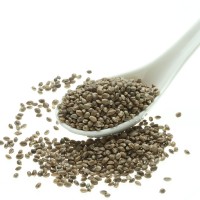Food Standards Australia New Zealand has finally given food made from the seeds of low THC hemp its stamp of approval – and is now calling for feedback on its proposal to finally permit the sale of such goods.
Australia and New Zealand are the last two countries in the world to generally ban hempseed foods. Even in New Zealand, hemp seed oil for human consumption has been legal since 2002, while across the ditch it’s still no-go.
On Thursday, the FSANZ gave the clearest indication yet that an end to the silliness is in sight.
“Based on previous work done in assessing applications for permitting the sale of food derived from low THC hemp, FSANZ considers low THC hemp seed foods to be safe for human consumption,” said FSANZ Chief Executive Officer Steve McCutcheon
“Moreover, they may provide a useful alternative dietary source of nutrients and polyunsaturated fatty acids, particularly omega-3 fatty acids.”
Recent research has indicated hemp seed oil could play a role in reducing risk of heart disease and diabetes.
As we’ve mentioned in the past, the move towards ending the ban has been a really, really, slow journey; dating back to 2002.
FSANZ has prepared the long-awaited Proposal P1042, and it is now available for public comment.
Aside from the THC issue, there was some concern about cannabidiol (CBD) in hempseed foods, even though CBD is non-intoxicating, has therapeutic qualities and is generally well-tolerated even at high levels.
A document supporting the proposal states estimates have indicated consumption of low THC hemp seed foods would not result in any Australian and New Zealand population groups assessed reaching the Lowest Oral Human Therapeutic Dose (LOTHD) of CBD.
As a result of this and other factors, FSANZ has decided not to propose a CBD limit in the Code for low THC hemp seed foods. However, the fortification of low THC hemp seed foods with CBD will not be permitted.
With regard to defining “low-THC”; it varies between various foods – from 0.2 mg/kg for beverages, to 5 mg/kg for the seeds themselves and various products, to 10 mg/kg for hemp seed oil.
As for the industrial hemp plants the seeds come from, the leaves and flowering heads of the Cannabis sativa must not contain more than 1% delta 9-tetrahydrocannabinol.
The deadline for submissions on the proposal is 6pm August 25, 2016.
Perhaps we’ll see hempseed foods (labelled as foods) on the shelves of Australian supermarkets quite soon.


